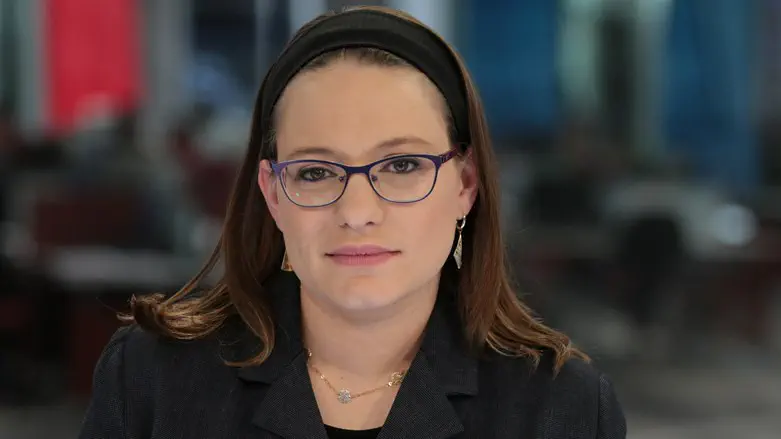
* Translation by Yehoshua Siskin
*1*. This Shabbat and Sunday, we celebrate the new month of Tevet. Shabbat was a truly special day since we did not only celebrate Shabbat but Hanukkah and Rosh Chodesh (the first of the month) as well. That means a wide range of customs as well as festive additions to our prayers, to Birkat HaMazon, and to our Torah readings.
*2*. This week's Torah portion is Miketz, in which the story of Joseph and his brothers continues. Three Torah portions with hundreds of verses are devoted to the difficult struggles and eventual reconciliation of the brothers who formed the basis of the twelve tribes of Israel. The Ten Commandments are quite short in comparison to this detailed story, in which there would thus appear to be a most profound message for us all.
*3*. On Friday night, we all first kindled the six Hanukkah lights and only then the Shabbat candles because if we light the Shabbat candles we have started keeping Shabbat and may not kindle any lghts after that..At the close of Shabbat, certain communities kindle the Hanukkah lights first and then do Havdalah and other communities do the opposite.
*4*. And here is a fascinating halakhic question raised in the Talmud: If you only have enough money for Shabbat or Hanukkah candles, which should you buy? Today this is only a theoretical question, Baruch Hashem, but there was poverty among Jews in ancient Israel and in later generations as well and so it was essential that an answer to this question be provided. The answer is Shabbat candles since bringing light inside our homes comes first and only then can we focus our attention on lighting up the world outside. With all due respect to our public mission, it is secondary to what happens to our private mission of radiating light within our homes.
Still, what are the Hanukkah lights telling us?
"I am about to speak in front of people gathered for a Hanukkah candle lighting ceremony and I have nothing to say," a friend wrote me this week. Here are a few suggestions I wrote in response:
On Hanukkah we take note of the fact that the Hasmoneans rebelled against the Greeks and triumphed. The Greeks did not want to kill us. They "only" demanded that we abide by decrees that violated our values. They would permit us to live, but not as Jews. What are our red lines today? Where will we always say "no" and at what point are we prepared to rebel against certain social and cultural norms that are unacceptable to us?
There is a custom for women not to do any work for the first thirty minutes, at least, during which the candles or oil lamps are burning. Yes, to put the cell phone aside and stop trying to run the world. To look at those around us, to talk, to eat, to play, to sing, to pray, to laugh, to be grateful for the light in our lives. It is a serious challenge throughout the holiday, especially in the middle of a work day filled with acitivity, to create such an island of tranquility. Are we capable of this?
Seder night comes in with a bang. And so does Yom Kippur. But Hanukkah comes in gradually. Each day we add a little more light, another bit of radiance. This is not just a technical matter but an approach to life. Our sages call this "mosif veholech" (always add more). Where in our lives are we always adding more light? Are we continually adding opportunities and increasing our potential for doing good, both as individuals and as a nation?
But, in the end, I wrote her that we really don't have to dig too deep. It's enough to abide by an old hassidic saying: "We need to listen to what the Hanukkah lights are telling us." We can simply be silent, gaze at the flames, and listen to what they have to say.
And here is one thing they say to me that I repeated elsewhere:
"I have no doubt that you will be successful," I told hundreds of students at The Frisch School - a Jewish High School in Paramus, New Jersey - a few days ago. "You are studying in a prestigious private school whose graduates are renowned throughout the United States. Your academic records are exemplary and you will go on to study at the best colleges. In this context, who among you remembers where 'ish matzliach' (successful man) is mentioned in the Torah?"
Many of the students raised their hands since, in our weekly Torah reading, we had arrived at the story of Yosef HaTzadik, who excelled in every position to which he was appointed in Egypt. As the verse states: 'and he was a successful man.'
In the verse that immediately follows, the secret of this success is explained. 'And his master saw that the Lord was with him, and whatever he (Yosef) did the Lord made succeed through his hand.'"
This is a new and revolutionary definition of success. Yosef does not succeed solely because of professional prowess, but because God is with him - a fact that is clear for Potiphar, his boss, to see. Yosef succeeds because he brings his divinely inspired values and faith into the work he is tasked to do. Everyone who meets him - and observes how he conducts himself - sees the ways of God.
Yosef's brand of success is something not only for high school students, but for all of us, to emulate. The Torah's definition of success, as embodied in Yosef, compels us to ask this question: To what extent is our success a reflection of our highest values and can we be truly successful without living those values in everything we do?
May we all be successful in the truest sense.
Chodesh tov, and happy last two days of Hanukkah!